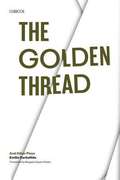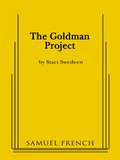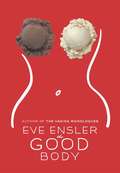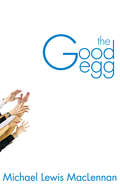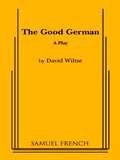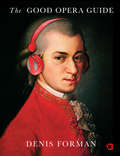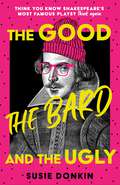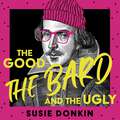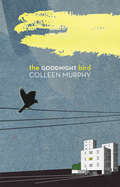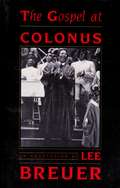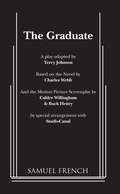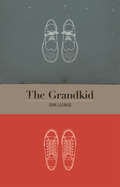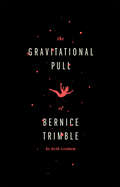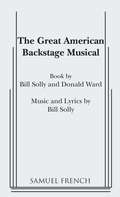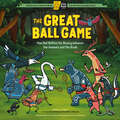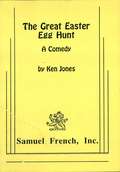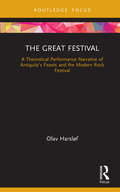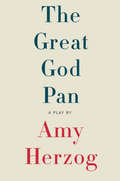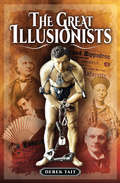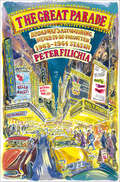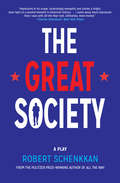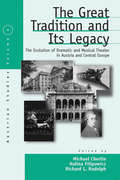- Table View
- List View
The Golden Thread and other plays
by translated by Margaret Sayers Peden Emilio CarballidoEmilio Carballido (1925–2008) was one of the most innovative and accomplished of Mexico's playwrights and one of the outstanding creators in the new Latin American theater. By his mid-forties he had already produced an impressive body of works in two very different veins. On the one hand, he mastered the techniques of the "well-made play. " On the other, he developed a richly rewarding vein of fantasy, sometimes poetic, sometimes comic, sometimes macabre—and sometimes all three. The plays in this volume are in the latter vein, ranging from surrealist farce in "The Intermediate Zone" to the grotesqueries of "The Time and the Place," from tragicomedy in "Theseus" to the dreamlike permutations of "The Golden Thread. " But even at his most fantastic, Carballido never loses his remarkable gift for characterization: his peevish Minotaur, his raffis Nahual (were-jaguar) are wholly believable monsters.
The Goldman Project
by Staci SwedeenDrama / 2f, 1m / It is 1994 and Naomi Goldman, recently widowed, is living in an apartment in upper Manhattan. Her son Tony, separated from his wife, lives with her. When Tony's old college girlfriend Aviva contacts him with the ulterior motive of interviewing and videotaping his mother for a Holocaust memorial project, Tony is appalled. Naomi, reluctant at first, eventually agrees to the interview. Though appearing to be forthright in her story Naomi clearly is hiding a devastating secret. When Aviva pushes her to admit the truth the consequences are life-changing. The Goldman Project is a play about family relations, the lingering legacy of the Holocaust and the catharsis of self-renewal. / "Introducing Naomi, a Romanian-born widow, as a lovably comic, more than a little stereotypical character...a smart decision on the part of Staci Swedeen" - Anita Gates, The New York Times
The Good Body
by Eve EnslerBotox, bulimia, breast implants, stomach tucks - Eve Ensler is back, with another round of poignant and hilarious stories about the secret lives of women. Here are our intimate obsessions laid bare - who hasn't hungered for shapelier thighs, a nip or tuck or just a little piercing? Ensler toured the world asking women about their anatomical obsessions and gives us their stories: a Puerto Rican's ruminations on fat and family, an Indian beauty's obsession with hair, an LA woman's ultimate concession to h...
The Good Egg
by Michael Lewis Maclennan Amy Lynn StrilchukThey're the ultimate downtown couple—attractive, smart, and successful. They have everything they could ever want. Except a child. When bad news points them to alternative methods of conception, they encounter a handsome young art model. He seems like the perfect solution to their problems. But as this unlikely trio gets more intimate, secret agendas surface and threaten to destroy not only their hasty deal, but everything they've so carefully built for themselves. From one of Canada's funniest playwrights, The Good Egg is a penetrating look at timely, controversial issues. Theatrically audacious, it's also an achingly real and hilarious portrait of three unpredictable people on the brink.
The Good Egg
by Michael Lewis MacLennanThey’re the ultimate downtown couple—attractive, smart, and successful. They have everything they could ever want. Except a child. When bad news points them to alternative methods of conception, they encounter a handsome young art model. He seems like the perfect solution to their problems. But as this unlikely trio gets more intimate, secret agendas surface and threaten to destroy not only their hasty deal, but everything they’ve so carefully built for themselves. From one of Canada’s funniest playwrights, The Good Egg is a penetrating look at timely, controversial issues. Theatrically audacious, it’s also an achingly real and hilarious portrait of three unpredictable people on the brink.
The Good German
by David WiltseFull Length, Drama \ 3 m, 1 f \ Int. \ Despite his prejudices, Karl Vogel offers refuge to a fugitive Jew during World War II to please his wife. Karl strongly dislikes Wilhelm Braun, but even after his wife dies he refuses to betray his devotion to her and her faith in his decency by evicting him. Karl's friend Siemi, a man who has anti-Semitic sympathies but does not agree with the German government's campaign to demonize Jews, has even become fond of Braun. Even so, Siemi becomes convinced he must betray Braun to the Gestapo in order to save Karl and himself. Karl is forced to decide whether his sense of decency is stronger than his sense of self preservation. Should he protect his unwanted guest or allow him to be turned over to a regime he finds repugnant? \ "Very powerful.''-Jewish Ledger
The Good Opera Guide (Phoenix Giants Ser.)
by Sir Denis FormanHere is an excerpt of what The Good Opera Guide has to say about Cilea’s Adriana Lecouvreur: “The one about the star of stage and screen whose rival sends her a bouquet of poison gas violets. She sniffs it: snuffs it.”The Good Opera Guide is not only for regular operagoers but also for people who are new to the world of opera, or indeed people who want to bluff their way through a performance! It is written with humor and is entertaining as well as informative. Where else would you find a “dagger count” for La Gioconda, and have Hansel and Gretel categorized as a “Gingerbread Opera”? From Adriana Lecouvreur to Mozart’s Die Zauberflöte, for each opera, Sir Denis details the plot and cast of characters, awarding stars to parts that are “worth looking out for,” “really good,” or, occasionally, “stunning.” He goes on to tell the history of each opera and its early reception. Finally, each work is graded from alpha to gamma, and Sir Denis has no qualms about voicing his opinion. The guide also presents brief biographies of the great composers, conductors, and singers. A glossary of musical terms is included, as well as “Operatica,” or the essential elements of opera, from the proper place and style of the audience’s applause (and boos) to the use of subtitles.
The Good, the Bard and the Ugly: A funny, modern take on Shakespeare's best-known plays from the Bafta-winning Horrible Histories writer
by Susie Donkin'I can wholeheartedly confirm that Susie Donkin is funnier than Shakespeare' MEL GIEDROYC'Impeccably researched, contagiously enjoyable, highly recommended.' BRIAN COXImogen thinks she knows what Shakespeare's most famous plays are all about. Everyone does, right? Star-crossed lovers. Naughty Greeks getting up to mischief in the woods. Scottish kings losing their minds. Young men with daddy issues. Dads who just need some positive affirmation from their daughters*. (*Okay, that's maybe putting it a bit mildly) But when Imogen brings 14 amateur actors together to perform one of the Bard's great works in a bid to save their local community centre, it becomes apparent that she - or anyone who reads this book for that matter - will never see Shakespeare's greatest works in the same light again . . ."BAFTA-winning Horrible Histories writer Susie Donkin makes Shakespeare's greatest works even greater." Stan Lafski, Imogen's uncle "A very funny book. Would definitely not have been as funny if it was about Christopher Marlowe." Larry Fairfoul, troupe member
The Good, the Bard and the Ugly: A funny, modern take on Shakespeare's best-known plays from the Bafta-winning Horrible Histories writer
by Susie Donkin'I can wholeheartedly confirm that Susie Donkin is funnier than Shakespeare' MEL GIEDROYC'Impeccably researched, contagiously enjoyable, highly recommended.' BRIAN COXImogen thinks she knows what Shakespeare's most famous plays are all about. Everyone does, right? Star-crossed lovers. Naughty Greeks getting up to mischief in the woods. Scottish kings losing their minds. Young men with daddy issues. Dads who just need some positive affirmation from their daughters*. (*Okay, that's maybe putting it a bit mildly) But when Imogen brings 14 amateur actors together to perform one of the Bard's great works in a bid to save their local community centre, it becomes apparent that she - or anyone who reads this book for that matter - will never see Shakespeare's greatest works in the same light again . . ."BAFTA-winning Horrible Histories writer Susie Donkin makes Shakespeare's greatest works even greater." Stan Lafski, Imogen's uncle "A very funny book. Would definitely not have been as funny if it was about Christopher Marlowe." Larry Fairfoul, troupe member
The Good, the Bard and the Ugly: A funny, modern take on Shakespeare's best-known plays from the Bafta-winning Horrible Histories writer
by Susie DonkinA hilarious, irreverent take on Shakespeare's best-known plays from BAFTA-winning Horrible Histories writer Susie Donkin.Imogen thinks she knows what Shakespeare's most famous plays are all about. Everyone does, right? Star-crossed lovers. Naughty Greeks getting up to mischief in the woods. Scottish kings losing their minds. Young men with daddy issues. Dads who just need some positive affirmation from their daughters*. (*Okay, that's maybe putting it a bit mildly) But when Imogen brings 14 amateur actors together to perform one of the Bard's great works in a bid to save their local community centre, it becomes apparent that she - or anyone who reads this book for that matter - will never see Shakespeare's greatest works in the same light again . . ."BAFTA-winning Horrible Histories writer Susie Donkin makes Shakespeare's greatest works even greater." Stan Lafski, Imogen's uncle "A very funny book. Would definitely not have been as funny if it was about Christopher Marlowe." Larry Fairfoul, troupe member(P)2023 Hodder & Stoughton Limited
The Goodnight Bird
by Colleen MurphyLilly and Morgan Beaumont are comfortable in their routine until Parker, a homeless man, lands on the balcony of their new condo. After scaring the older couple half to death, he pours himself into the holes of their relationship, agitating them with talk of sex—talk that drives Lilly out into the night and sends Morgan on the road to another heart attack.
The Gospel at Colonus
by Lee BreuerA founding member of the acclaimed New York-based company Mabou Mines, Breuer's gifts as a writer and director have have made him a mainstay of the theatrical avant-garde.
The Graduate
by Terry Johnson Charles WebbComedy / Characters: 6 male, 5 female / Unit set / A hit in the West End and a popular show on Broadway starring Kathleen Turner, The Graduate brings the inspired movie hit of the Sixties vividly to life on stage. . Benjamin Braddock, recent college graduate and prodigal son, returns home and promptly becomes embroiled in an affair with the wife of his father's business partner, one Mrs. Robinson, but soon finds himself falling in love with her daughter, Elaine.. "After a long and successful run in the West End, The Graduate is now on Broadway and IT's A HIT!"- Variety
The Grandkid
by John LazarusJulius Rothstein and his granddaughter Abby have loved each other from opposite ends of Canada since Abby was born. But now, accepted as a freshman student at the university where Julius teaches, Abby is moving in with him to be close to school and to keep her newly widowed grandfather company. The two must negotiate a new relationship as housemates and friends, which means dealing with issues of youth and age, work and play, activism and apathy, homework and heart attacks, and those three tricky topics: sex, politics, and religion.
The Gravitational Pull of Bernice Trimble
by Beth GrahamIris Trimble is trying to hold it all together. She may very well fly off the face of the earth if she doesn't hang on to the kitchen counter. At least that's how she feels after her mother, Bernice, a lively, recently widowed fifty-nine-year-old breaks the news that she has Alzheimer's. In an effort to cope with the stress, Iris makes her mother's famous Everything That Is Bad For You Casserole, a childhood favourite. Her siblings, on the other hand, are on opposite sides of the spectrum: Sarah, the eldest, irately demands a second opinion, while Peter, the youngest, seems completely unfazed. As for Bernice, she's still as vivacious as ever, always up for a good laugh, and, most of all, ready to finally put herself first.
The Great American Backstage Musical
by Bill SollyThis funny, fast moving entertainment evokes the bright world of 1940s Hollywood musicals in which an obscure young singer and her equally obscure song writing boyfriend play out their romance against a theatrical background of auditions, misunderstandings, self sacrifice, overnight stardom and a full score of songs.
The Great Ball Game: How Bat Settles the Rivalry between the Animals and the Birds; A Circle Round Book (Circle Round)
by Rebecca SheirA classic folktale with roots in the traditional stories of many Indigenous peoples in North America, The Great Ball Game is adapted for today's kids by Rebecca Sheir, host of the award-winning Circle Round podcast. The stunning art of Joshua Mangeshig Pawis-Steckley, an Ojibwe woodland artist, along with creative activities, make this an engaging picture book that also fosters storytelling and promotes the values of diversity, acceptance, and understanding of others.
The Great Easter Egg Hunt
by Ken JonesComedy / 9m, 6f / Exterior / This comedy centers around an Annual Easter Egg Hunt. Citizens vie for the ultimate prize attainable in Umatilla, Florida the Golden Egg. Meanwhile Horseshoe and Clem Dumpling seek to avenge their shattered hopes of married bliss, the town flirt chases every man except for the one who is in love with her and two young lovers struggle to escape this small town. Judge Pulander officiates, but is soon overwhelmed by apple and cypress bark cider. The Rifle Association initiates a blood feud while the Women's Club fans the fire with gossip. The Great Easter Egg Hunt is a comic journey through one day in an isolated town that reflects the greed, cowardice, regret, avarice, love, stupidity, hope, passion and drama of life in America.
The Great Festival: A Theoretical Performance Narrative of Antiquity’s Feasts and the Modern Rock Festival
by Olav HarsløfThe Great Festival presents and analyzes two historical festivals - the ancient Dionysus Festival and the present Roskilde Festival. The purpose is to set up two comparable structures or 'codes' to explain the universal artistic effects, structures and fascination of the festival. Olav Harsløf argues that there are major structural, organizational and economic similarities which, when exposed, can give us greater insight into today's festivals. This is illuminated through a combined performance design and event analysis of the ancient Dionysus festival and today's Roskilde Festival, explaining the festival's historicity, diversity, complexity and paradigmatic strength. This will be a discussion of great interest to researchers and students in the fields of performance studies, experience economy, theater, music, classical philology and archeology.
The Great God Pan
by Amy Herzog"The Great God Pan is a haunting, deeply affecting play about the interaction of identity, psychology and pathology. Ms. Herzog writes with keen sensitivity to the complex weave of feelings embedded in all human relationships, with particular attention to the way we tiptoe around areas of radioactive emotion." - New York Times"Whatever the ideal contemporary American drama is, it has to look a lot like The Great God Pan. It is provocative and subtle, slowly, carefully revelatory, sweetly moving, thought-provoking, funny and insightful." - New York Observer"An intelligent, delicately articulate writer." - Village Voice"A moving and unsettling look at the nature of identity and the vagaries of memory. With subtlety and compassion, Herzog contemplates how well we can really know ourselves." - BackstageJamie's life in Brooklyn seems just fine: a beautiful girlfriend, a burgeoning journalism career, and parents who live just far enough away. But when a possible childhood trauma comes to light, lives are thrown into a tailspin. Unsettling and deeply compassionate, The Great God Pan tells the intimate tale of what is lost and won when a hidden truth is suddenly revealed.Amy Herzog's plays include 4000 Miles (Pulitzer Prize finalist), After the Revolution and Belleville. Ms. Herzog is the recipient of numerous awards, including the Whiting Writers' Award, an Obie Award and the Helen Merrill Award for Aspiring Playwrights.
The Great Illusionists
by Derek TaitHoudini and beyond: a historic magical mystery tour of the great showmen who inspired the likes of David Blaine, Penn & Teller, and Siegfried & Roy. Today, Harry Houdini stands as the most famous illusionist and escape artist in history. But from the late nineteenth century to early twentieth century, magicians and escapologists who inspired—and were inspired by—Houdini packed vaudeville houses and local theaters across the globe. The Great Illusionists reveals the careers, lives, and sometimes shocking on-stage deaths of the greatest showmen to ever wow the world. In addition to the astounding accomplishments of Houdini, marvel at the feats of Jean-Eugène Robert-Houdin, the “Father of Modern Conjuring”; the Davenport Brothers, music hall mediums and devotees of the Spiritualist movement; the “Dean of American Magicians” Harry Kellar; master illusionists, the Great Raymond, David Devant, the Great Lafayette, and Chung Ling Soo; the novelty performances of The Human Fly and Datas, “The Living Encyclopedia”; and many more. From vanishing acts and public seances to harrowing bullet-tricks and psychic wizardry, The Great Illusionists brings to life a unique history of entertainment.
The Great Parade: Broadway's Astonishing, Never-to-Be-Forgotten 1963–1964 Season
by Peter FilichiaIt was the Broadway season when Barbra Streisand demanded "Don't Rain on My Parade" and Carol Channing heard the waiters at the Harmonia Gardens say "Hello, Dolly!". From June 1, 1963 through the final day of May 31, 1964, theatergoers were offered 68 different productions: 24 new plays, 15 new comedies, 14 new musicals, 5 revivals of plays, 3 revues, 3 plays in Yiddish, 2 in French, 1 double-bill and even 1 puppet show. Peter Filichia's The Great Parade will look at what a Broadway season looked like a half-century ago analyzing the hits, the flops, the trends, the surprises, the disappointments, the stars and even how the assassination of JFK and the arrival of the Beatles affected Broadway.The Great Parade is a chronicle of a Broadway season unprecedented in the star power onstage: Barbara Streisand, Carol Channing, Claudette Colbert. Colleen Dewhurst, Hal Holbrook, Mary Martin, Christopher Plummer, Robert Preston, Julie Harris, Jason Robards, Jr., Carol Burnett, Tallulah Bankhead, Alec Guinness, Kirk Douglas, Albert Finney, Paul Newman, Joanne Woodward, Richard Burton, Mary Martin, Beatrice Lillie, Hermione Gingold, Robert Redford and many more. Neil Simon and Stephen Sondheim burst on to the Broadway stage with Barefoot in the Park and Anyone Can Whistle. The '63-'64 season was one of Broadway's greatest and in The Great Parade, Peter Filichia gives us another classic.
The Great Society: A Play (Books That Changed the World)
by Robert SchenkkanThis drama about LBJ’s 1960s War on Poverty “shines a bright, clear light on a pivotal moment in American history” (Charles Isherwood, TheNew York Times).The tumultuous beginning of Lyndon Johnson’s presidency that Robert Schenkkan presented in the multiple Tony-winning All the Way continues in part two, The Great Society, which had its world premiere at the Oregon Shakespeare Festival in July 2014, directed by Bill Rauch and starring Jack Willis. In the years from 1965 to 1968, President Lyndon Johnson struggles to fight a “war on poverty” even as his war in Vietnam spins out of control. Besieged by political opponents, Johnson marshals all his political wiles to try to pass some of the most important social programs in U.S. history, while the country descends into chaos over the war and backlash against civil rights. In the tradition of the great multi-part Shakespearian historical plays, The Great Society is an unflinching examination of the morality of power.“A taut political thriller…Schenkkan’s writing shines…a vital study for all those who wish to learn from the past in order to gain some idea of what we might do in the present.”?Austin American-Statesman
The Great Tradition And Its Legacy
by Michael Cherlin Richard L. Rudolph Halina FilipowiczBoth dramatic and musical theater are part of the tradition that has made Austria - especially Vienna - and the old Habsburg lands synonymous with high culture in Central Europe. Many works, often controversial originally but now considered as classics, are still performed regularly in Vienna, Prague, Budapest, or Krakow. This volume not only offers an excellent overview of the theatrical history of the region, it is also an innovative, cross-disciplinary attempt to analyse the inner workings and dynamics of theater through a discussion of the interplay between society, the audience, and performing artists.
